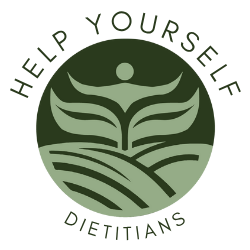Inflammatory Bowel Disease (IBD)
How our dietitians can help you
- Personalised support: We work closely with you to identify your dietary triggers, nutrition priorities, and food preferences, ensuring tailored advice that fits your lifestyle.
- Managing symptoms and flares: Living with IBD may sometimes feel like a balancing act, we help you differentiate food-related symptom responses from other triggers.
- Know the difference: Diet for preventing and managing the different forms of IBD are very different. Our dietitians understand the specific management of Crohns disease, Ulcerative Colitis, Microscopic colitis and ulcerative proctitis. We provide advice relevant to your condition, symptoms and diet.
- Balanced, enjoyable eating: We support clients in maintaining good nutrition without overly restrictive diets, helping you enjoy food while managing symptoms effectively.
- Practical, empowering advice: Your confidence in our clinical experience and research expertise reduces food-related stress, empowering you in your health journey.
- Evidence-based guidance: Dr Kerith Duncanson and Dr Georgina Williams are actively involved in clinical trials exploring how diet affects the gut microbiome and inflammation in Crohn’s disease, and apply this knowledge to client management.
- Navigate your path: We help you navigate confusing, conflicting dietary advice, focusing on science-backed strategies that support symptom management and overall health.
More about IBD
Dietary Management
IBD is actually a group of chronic conditions characterised by gastrointestinal inflammation. The main conditions are Crohn’s disease (which can occur anywhere in the digestive system) and ulcerative colitis (large bowel only). Both conditions can lead to symptoms such as abdominal pain, changes in bowel habits, and nutritional deficiencies, all of which can significantly impact quality of life.
Maintaining a balanced diet while managing the symptoms of Inflammatory Bowel Disease (IBD) can be particularly challenging. Identifying which foods may trigger flares is often difficult, especially when faced with conflicting information about the condition. The good news is that with effective symptom management and a well-planned, varied diet, it is possible to reduce the risk of flares and reduce symptom severity.
Our IBD publications
- Nieva, C., Pryor, J., Williams, G.M., Hoedt, E.C., Burns, G.L., Eslick, G.D., Talley, N.J., Duncanson, K. and Keely, S., 2024. The impact of dietary interventions on the microbiota in inflammatory bowel disease: A systematic review. Journal of Crohn’s and Colitis, 18(6), p.920
- Prasad, S.S., Walker, M.M., Talley, N.J., Keely, S., Kairuz, T., Jones, M.P. and Duncanson, K., 2022. Healthcare needs and perceptions of people living with inflammatory bowel disease in Australia: a mixed-methods study. Crohn’s & Colitis 360, 4(1), p.otab084.
- Thacker, N., Duncanson, K., Eslick, G.D., Dutt, S., O’Loughlin, E.V., Hoedt, E.C and Collins, C.E. Antibiotics, passive smoking, high socioeconomic status and sweetened foods contribute to the risk of paediatric inflammatory bowel disease: A systematic review with meta‐analysis. Journal of Pediatric Gastroenterology and Nutrition 79, no. 3 (2024): p.610-621.
- Prasad, S.S., Duncanson, K., Keely, S., Talley, N.J., Kairuz, T., Holtmann, G.J., Shah, A. and Walker, M.M., 2020. A role for primary care pharmacists in the management of inflammatory bowel disease? Lessons from chronic disease: a systematic review. Pharmacy, 8(4), p.204.

Book with Kerith or Georgina
Kerith and Georgina specialise in various gastrointestinal conditions and symptoms. Their consulting work with clients complements their research in gastrointestinal nutrition.
Face-to-face appointments
Kerith offers appointments at Newcastle Gastroenterology and Health HQ Salamander Bay.


Contact Us
Email – office@helpyourself.com.au

